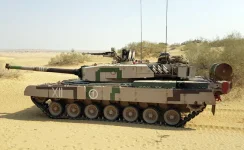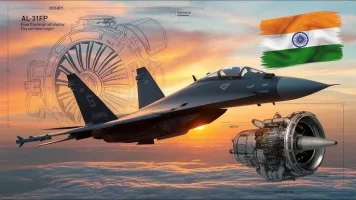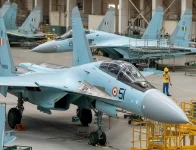- Views: 1K
- Replies: 2

India's defence maintenance, repair, and overhaul (MRO) sector is poised for a significant transformation, fueled by strategic partnerships between global aerospace giants and domestic firms.
Over the next five years, the sector is expected to evolve into a regional hub for military aviation maintenance, propelled by policy reforms, a maturing industrial ecosystem, and a growing emphasis on indigenous capabilities.
Collaborations between international leaders like Lockheed Martin and Boeing with Indian companies such as Tata Advanced Systems Ltd (TASL) and AI Engineering Services Ltd (AIESL) are playing a crucial role.
These partnerships are focused on creating state-of-the-art MRO facilities in India to cater to both domestic and regional needs. The goal is not only to service Indian defence platforms but also to attract international clients from the Asia-Pacific and Middle East, capitalizing on India's cost-effectiveness and skilled workforce.
India's push for self-reliance in defence manufacturing, embodied in the "Atmanirbhar Bharat" initiative, has been instrumental in driving the growth of the MRO sector.
Key policy reforms, such as reduced GST rates for MRO services and streamlined customs procedures, have incentivized global players to invest in India. Furthermore, defence procurement policies increasingly mandate local maintenance as part of contracts, ensuring long-term support for the indigenous MRO ecosystem.
The participation of both private and public sector companies in India is vital for the sector's growth. While established players like Hindustan Aeronautics Ltd (HAL) are expanding their MRO capabilities for platforms like Sukhoi-30MKI fighters and transport aircraft, private companies are also stepping up with cutting-edge technologies and processes.
For instance, TASL has already established a comprehensive facility for servicing Boeing's C-17 Globemaster and P-8I maritime surveillance aircraft.
The next five years will witness the establishment of new MRO facilities across India, catering to a wide range of platforms, including combat aircraft, transport planes, and unmanned aerial systems. The development of specialized centers for advanced avionics, radar systems, and propulsion units will further enhance India's MRO capabilities.
The government's focus on dual-use technologies will allow these facilities to serve both defence and civil aviation needs, optimizing resource utilization and creating a more robust and dynamic MRO landscape.
This expansion of the MRO sector will create significant opportunities for local suppliers. Indian MSMEs are expected to play a key role in providing components, spares, and subsystems, reducing dependence on imports and boosting domestic manufacturing.
Partnerships with global OEMs will also facilitate technology transfer, enabling local companies to enhance their expertise and integrate into the global supply chain.
Positioning India as a regional MRO hub has strategic implications. It reduces turnaround time for defence platforms, enhances operational readiness, and saves valuable foreign exchange previously spent on overseas maintenance. Moreover, offering MRO services to friendly foreign nations strengthens defence diplomacy and opens up new revenue streams.
By fostering a collaborative environment, implementing supportive policies, and leveraging its skilled workforce, India is well on its way to establishing a thriving defence MRO sector that will not only support its own armed forces but also contribute to its growing stature in the global aerospace industry.



